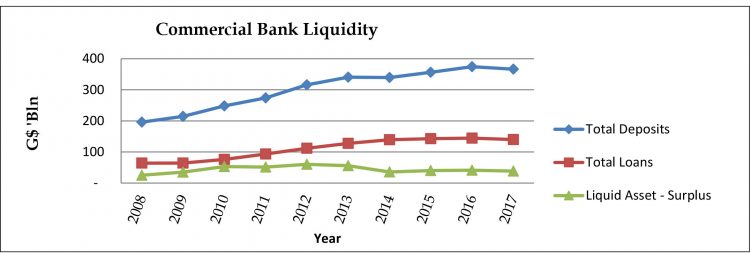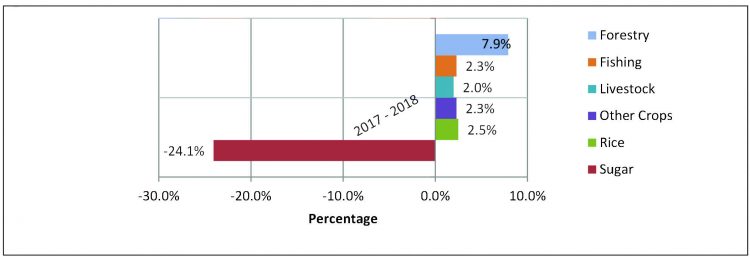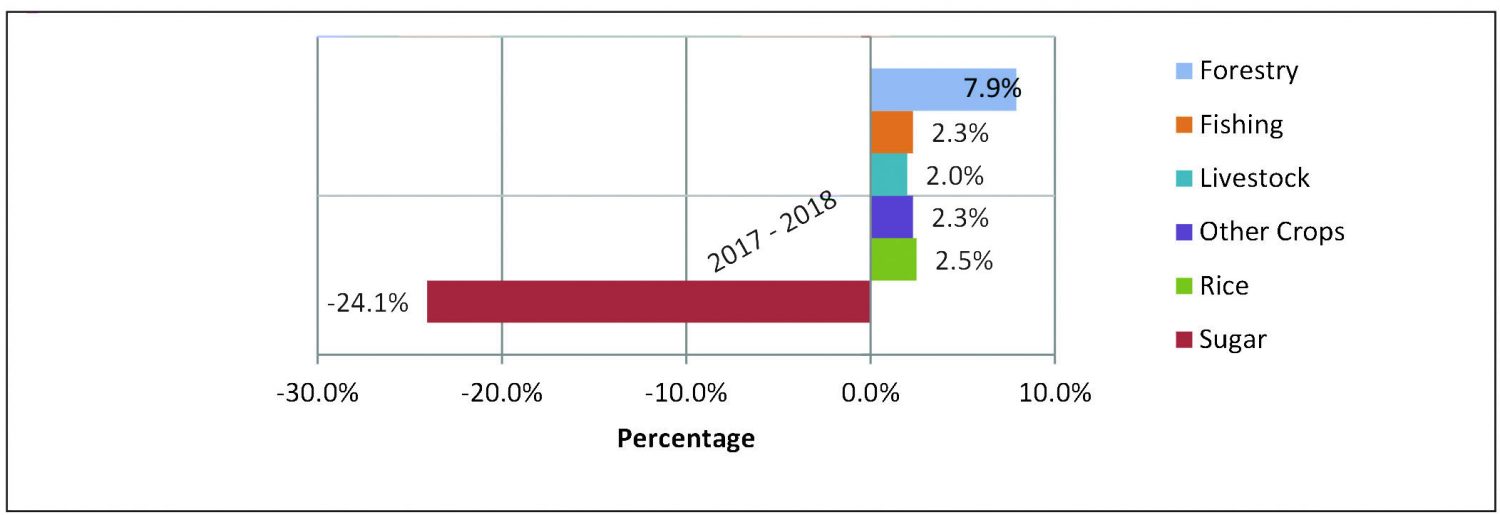Introduction
The Minister of Finance, Mr. Winston Jordan, presented the fourth budget of the APNU/AFC Coalition – with “The Journey to the Good Life Continues” as its theme. In a speech that included an inordinate level of detail the Minister presented the Government’s Agenda for 2018.
Policy
- Macroeconomic Stability: Consolidation of legislation to govern debt into a draft Public Debt Management Bill to allow for more effective public debt management.
- Green State Development: Developing an inclusive, comprehensive strategy to harmonise the budget with the central themes of the GSDS.
- Constitutional Reform: Being addressed by a special select committee in Parliament
- Local Government Systems: Holding Local Government Elections in 2018.
- Justice Reform: A Law Reform Commission will be established, a Legal Aid programme introduced and probation services will be strengthened.
- Sustainable Development Goals: Budget Agencies to formulate their medium term budget goals around the internationally developed.
- Social Cohesion: Government to continue to work to rebuild trust and cohesiveness by engaging civil society groups and local and central government agencies.
- Better Government
- Public Sector Investment Programme and Public Procurement: Procurement legislation will be updated to and registers of contractors and procurement evaluators will be established.
- Budgeting for Results: introduction of an Information Financial Management Information System.
- Government Accounting and Treasury Management: Introduction to a Treasury Single Account, the adoption of International Public Sector Accounting Standards and upgrading the National Payment System to a digital one.
- Promoting Financial Sector Stability: Developing legislation on Financial Consumer Protection, deposit insurance and stress testing guidelines for the banking system.
- Expanding and Deepening Access to Financial Services: The development of a bond market and the replacement of the Securities Industry Act.
- Business and Investment: Establishment of a $100 million revolving fund accessible to businesses whose goods and services are sustainable and environmentally friendly. Business incubators, accelerators and registration hubs will be established. A Secure Transaction Regime, will allow for easier access to financing.
9. Emerging and Transformative Sectors: Government intends to complete liberalisation of the telecommunications sector and is seeking funding of $37.6 million for a national broadband initiative to expand the e-Government network.
10. Managing the Extractive Sector
The key initiatives are:
- Gold: The use and importation of mercury in mining will be regulated
- Oil and Gas: Replacement of the Production Sharing Model Contract and the development of a legal and institutional frame work will be developed to support a Sovereign Wealth Fund.
Infrastructure for Integration
Key initiatives are:
- Roads: Upgrading, resurfacing and expansion and the installation of elevators at the pedestrian overpasses. A feasibility study will be done on the first phase of the Linden – Lethem road.
- Bridges: Plans for the construction of the new Demerara Harbour Bridge underway and commissioning of a feasibility study for a bridge across the Kurupukari
- River: Funds have been allocated to upgrade or renovate all the major stellings, construct a ferry for the Parika-Mabaruma route and to upgrade the fleet of river and ocean-going vessels
- Air: Completion of the expansion of Cheddi Jagan International Airport and upgrading of aerodromes and airstrips with Lethem to become a regional and international hub
- Energy: The first solar farm will become operational in 2018 while feasibility studies for others to commence
- Housing: Government has concluded negotiations for a US$30 million loan to provide quality public infrastructure as well as the provision of housing subsidies for home improvements and core homes. In addition the Hinterland Sustainable Housing Programme has been allocated $240 million.
- Production Transformation and Agricultural Diversification: Government to partner with the Islamic Development Bank to update expertise and technology in rice production. In addition, funds have been allocated to construct an agricultural centre and reservoir in Lethem, and upgrade the research station in Ebini.
- A national agricultural census to be undertaken.
- National Security: Several initiatives to be undertaken including the rehabilitation of police stations and the construction of a new police station in Parfaite Harmonie, West Coast Demerara.
Targets
Overall real growth is projected at 3.8% in 2018 with the non-sugar economy projected to grow by 4.6% and the sugar economy projected to decline by 24%. The following graph presents the percentage of contribution to GDP at 2006 prices by various sectors:

The primary industry groups are addressed separately below. Construction is expected to decrease to 15.0% from the 16.9% growth seen in 2017 while the Transportation and Storage sector is projected to grow by 5.3% growth in 2018.
Agriculture, Fishing and Forestry
The following graph presents percentage of growth expected over the period 2017 to 2018:

A growth rate of 2.5% is projected for Rice in 2018 while Fishing is projected to record growth of 2.3% in 2018. Other crops are expected to grow by 2.3% in 2018.
Monetary Policy & Inflation
The rate of inflation (Urban Consumer Price Index – Georgetown) for 2018 is projected at 2.4% compared to the projected rate for 2017 of 1.3%.
Balance of Payments
Overall balance on the balance of payments is expected to reflect a deficit of US$79.7 million from a deficit of US$53.10 million in 2017. On the trade side, merchandise exports are expected to remain at US$1.5 billion. Merchandise imports are expected to rise by 5.7% to US$1.7 billion. With net imports of services at US$358.1 million, and private transfers of US$291.7 million, a net deficit of US$292.6 million is projected on the current account.
The capital account is projected to have a surplus of US$212.9 million in 2018 (US$181.8 million in 2017). In this account, a net inflow of US$228.5 million is expected from medium and long term capital while a net outflow of US$34.2 million is expected on short term capital.
Ram & McRae’s comments
Sugar is still the elephant in the room – Despite claims by the Minister of the Presidency that the Government has in excess of 50 proposals for the divestment of the sugar industry, the Special Purpose Unit at work since July is yet to present any viable solutions.
The word unemployment was mentioned once in all 84 pages of the Budget Speech 2018. The 2012 Census reported a National Average Rate of employment of 12.5 percent. With some 1,628 and 2,000 students graduating with degrees, diplomas and certificates in 2016 and 2017 respectively, the Government’s action or rather inaction leaves a lot to be desired.
The Minister in his budget has put forward many commendable medium and long-term development projects which, if efficiently executed, will be of tremendous benefit to the country. However, with the economy in a slowdown mode, appropriate policies are required now.
The APNU+AFC Government has shown little interest in constitutional reform although to its credit it has established many of the constitutional bodies which during the previous Administration were on paper only. At the same time, the President who enjoys certain immunities under the Constitution has set himself up as the interpreter of the Constitution rather than the High Court. Given the sloth at which the Government makes decisions and the President’s attitude to the Constitution, it is unlikely that there will be any constitutional changes before the 2020 Elections.
Transparency and autocracy: With respect to the two most important initiatives undertaken by this Administration – the new Demerara Harbour Bridge and the ExxonMobil contract – the Government has denied access to relevant documents. Democracy is an absolute, not a matter of convenience.
Social Cohesion: By almost any measure, the relations between the Government and the Opposition are as bad as they have been for a very long time. Unfortunately, this acrimony and suspicion have filtered down to their supporters. This atmosphere is most unhelpful in moving the country in a positive direction.
Some of the matters listed above are clearly not policy issues and many really come within the portfolio of other ministers, while still others should be left to the Regions. Central Government does not need to engage in every little activity in the regions – leave those to the regional administrations.
The Speech made in excess of twenty different references to studies, reviews, strategic and development plans, analyses, surveys, assessments and reports by advisory, consultative and technical committees, expert groups, and roundtables. Analysis and planning are laudable undertakings and information is integral to the decision-making process. It is hoped however that there is thorough evaluation of the significant costs versus the benefits derived from these activities and that analysis paralysis is not allowed to set in. In next year’s budget we hope that the minister is able to provide the Nation with a brief report on the costs and resultant benefits of actions taken on this multitude of studies.






